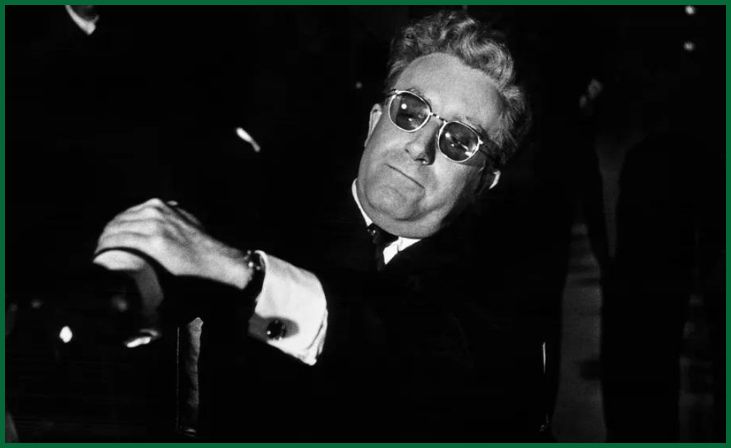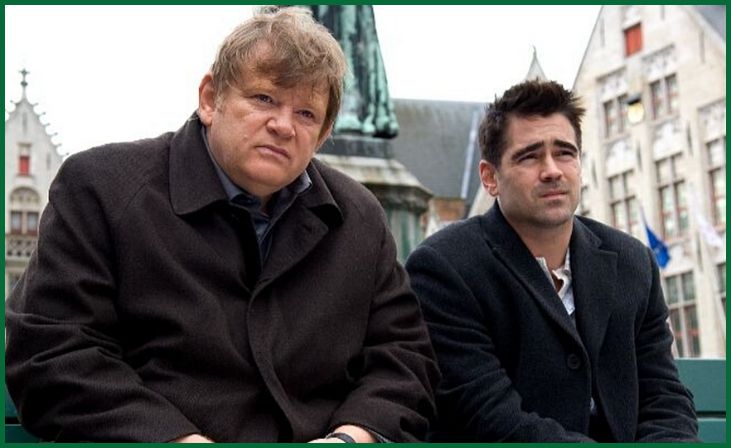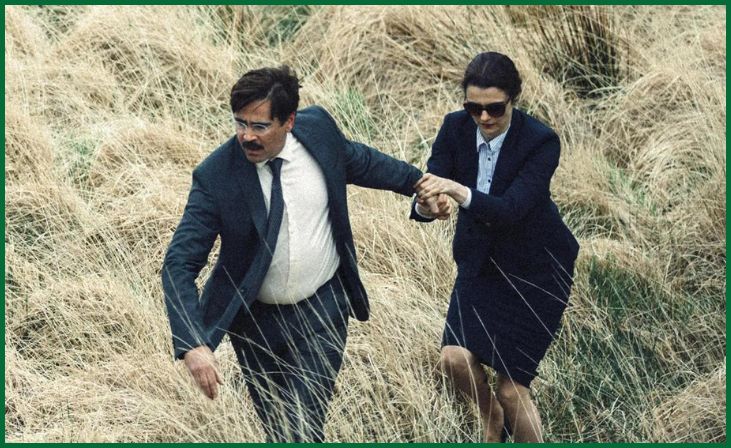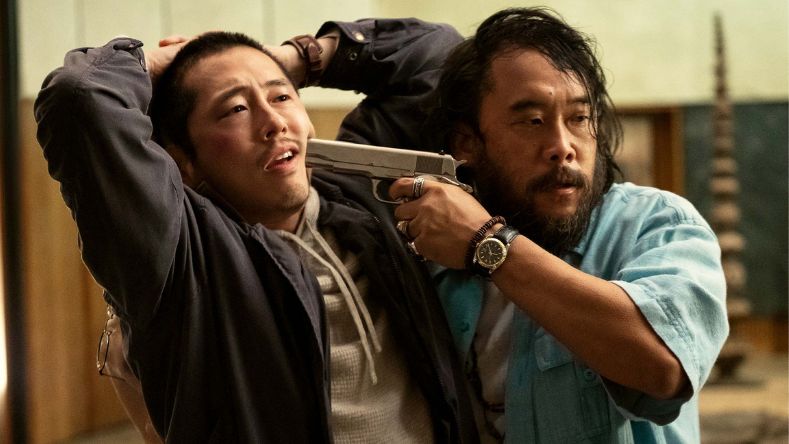Dark Comedies of All Time – Welcome to the intriguing realm of Dark Comedies Through the Ages, where humor meets the macabre, and satire dances with the sinister. Dark comedy, a genre that has evolved across literature, cinema, and television, thrives on its ability to explore taboo subjects, societal absurdities, and the darker facets of human nature through laughter.
From Shakespearean tragedies with a twist to modern tales of societal critique, this exploration will journey through the annals of storytelling.
As we delve into classic literature, the golden age of film, postmodern masterpieces, and the contemporary landscape, we’ll witness how dark comedies have become a potent mirror reflecting the complexities of the human experience.
Join us on this wickedly amusing expedition, where laughter is the lens through which we examine the shadowy corners of our shared existence.
Dark Comedies of All Time
“Dr. Strangelove or: How I Learned to Stop Worrying and Love the Bomb” (1964)

“Dr. Strangelove or: How I Learned to Stop Worrying and Love the Bomb” (1964) is Stanley Kubrick’s satirical masterpiece that humorously delves into the absurdity of nuclear warfare.
Set during the Cold War, the film follows a series of catastrophic events triggered by a deranged general’s belief in a Communist conspiracy. Peter Sellers delivers a stellar performance in multiple roles, including the iconic Dr. Strangelove.
The film’s dark humor and sharp social commentary highlight the absurdity of political and military decisions, making it a timeless classic that satirizes the very real threat of global annihilation with a touch of surreal wit.
Also, Read – Best Acting Performances that Defied Expectations
“American Psycho” (2000)
“American Psycho” (2000), directed by Mary Harron, adapts Bret Easton Ellis’s novel into a chilling and satirical exploration of 1980s excess and corporate greed. Christian Bale stars as Patrick Bateman, a wealthy New York investment banker with a dark secret: he’s also a sadistic serial killer.
The film navigates Bateman’s psychopathic tendencies with dark humor, offering a sharp critique of the superficiality and moral bankruptcy of the era.
Bale’s mesmerizing performance and the film’s unflinching portrayal of violence create a disturbing yet compelling commentary on the dehumanizing effects of capitalism and societal expectations. “American Psycho” remains a provocative and thought-provoking cult classic.
“Fargo” (1996)
“Fargo” (1996), a dark comedy directed by the Coen Brothers, unfolds in the frigid landscapes of Minnesota, where a kidnapping scheme takes a bizarre turn. Starring Frances McDormand as the pregnant and unyielding police chief Marge Gunderson, the film weaves a tale of crime and chaos with a distinctive blend of Midwestern charm and stark brutality.
The quirky characters, memorable accents, and unexpected humor punctuate the suspenseful narrative. “Fargo” earned critical acclaim, winning two Academy Awards, and its unique combination of violence and humor has solidified its place as a cinematic gem, showcasing the Coen Brothers’ mastery in crafting darkly comedic and morally complex stories.
“In Bruges” (2008)

“In Bruges” (2008), directed by Martin McDonagh, is a darkly comedic and visually stunning film that follows two hitmen, Ray (Colin Farrell) and Ken (Brendan Gleeson), sent to lay low in the medieval Belgian city of Bruges after a botched job.
The film masterfully balances humor and tragedy as the characters grapple with morality, redemption, and the consequences of their actions. Farrell’s witty performance, the picturesque setting, and McDonagh’s sharp writing contribute to the film’s unique charm.
“In Bruges” is a darkly hilarious exploration of guilt and atonement, with unexpected twists and a touch of existential reflection in this criminal comedy-drama.
Also, Read – The Best TV Shows of 2023
“Heathers” (1988)
“Heathers” (1988), directed by Michael Lehmann, is a dark teen comedy that subverts the high school genre with its irreverent humor and biting social commentary. Starring Winona Ryder and Christian Slater, the film explores the dark side of teenage angst, cliques, and popularity.
Veronica Sawyer (Ryder) and Jason “J.D.” Dean (Slater) embark on a murderous spree targeting the popular clique, the Heathers. The film’s satirical take on societal pressures and the consequences of unchecked power remains both shocking and thought-provoking.
“Heathers” is a cult classic that challenges conventional norms, blending comedy with a dark exploration of the perils of high school social dynamics.
“Pulp Fiction” (1994)
“Pulp Fiction” (1994), directed by Quentin Tarantino, is a groundbreaking film that weaves together interconnected stories in a non-linear narrative. This darkly comedic masterpiece explores the criminal underworld with an ensemble cast, including John Travolta, Uma Thurman, and Samuel L. Jackson.
Filled with sharp dialogue, memorable characters, and unexpected twists, “Pulp Fiction” revitalized cinema in the 1990s. Tarantino’s stylized direction, eclectic soundtrack, and blend of humor with intense violence contribute to the film’s cultural impact.
Nominated for seven Academy Awards and winning for Best Original Screenplay, “Pulp Fiction” remains a landmark in filmmaking, celebrated for its innovation and enduring influence on popular culture.
“Election” (1999)

“Election” (1999), directed by Alexander Payne, is a darkly comedic exploration of the cutthroat world of high school politics. Starring Reese Witherspoon as the overachieving Tracy Flick and Matthew Broderick as the frustrated teacher Jim McAllister, the film satirizes ambition, ethics, and the pursuit of power within the confines of a student body election.
Payne’s sharp wit and keen observations of human nature bring a hilarious yet cynical perspective to the challenges of adolescence and the adult world.
With standout performances and a clever script, “Election” stands as a smart and entertaining dark comedy that resonates with its audience long after the final vote is cast.
“Shaun of the Dead” (2004)
“Shaun of the Dead” (2004), directed by Edgar Wright, is a brilliant blend of horror and comedy that follows Shaun (Simon Pegg) and his friends as they attempt to survive a zombie apocalypse. Combining British humor with clever satire, the film affectionately pokes fun at zombie movie tropes while delivering genuine scares.
Wright’s signature visual style, rapid-fire dialogue, and the camaraderie among the characters make “Shaun of the Dead” a standout in the zombie genre.
With its witty humor, heartfelt moments, and a perfect balance of laughs and chills, this film has earned its place as a cult classic and a cornerstone of the zom-com subgenre.
“A Clockwork Orange” (1971)
“A Clockwork Orange” (1971), directed by Stanley Kubrick and based on Anthony Burgess’s novel, is a dystopian masterpiece that delves into the dark realms of ultraviolence and societal control.
Set in a bleak future, the film follows Alex DeLarge (Malcolm McDowell), a charismatic yet sadistic delinquent, as he undergoes an experimental rehabilitation process to suppress his violent tendencies. Kubrick’s visually striking and provocatively stylized film explores free will, morality, and the consequences of state intervention.
“A Clockwork Orange” remains a thought-provoking and controversial work, known for its unsettling portrayal of a society attempting to impose order at the expense of individual agency.
“The Lobster” (2015)

“The Lobster” (2015), directed by Yorgos Lanthimos, is a dystopian dark comedy that presents a surreal world where single people must find a romantic partner within 45 days or face transformation into an animal of their choice.
Colin Farrell stars as David, navigating this absurd society with deadpan humor and a touch of existentialism. Lanthimos crafts a unique and thought-provoking satire that explores societal pressures, conformity, and the quest for love.
The film’s deadpan humor, unconventional premise, and stellar performances, including Rachel Weisz and Olivia Colman, contribute to its darkly comic and emotionally resonant narrative, creating a cinematic experience that lingers in the mind long after viewing.
Conclusion
In conclusion, Dark Comedies stand as a timeless testament to the human inclination to find humor in the bleakest corners of existence. From Shakespeare’s wry reflections to the biting satire of contemporary masterpieces, this genre has transcended epochs, leaving an indelible mark on storytelling.
As society evolves, so does the dark comedy, continuing to provide a cathartic release and a mirror to our collective idiosyncrasies. The enduring appeal lies in its ability to make us laugh at the absurdity of our own humanity, proving that, even in the darkest of tales, humor remains a resilient and illuminating force.
FAQs
The history of dark comedies can be traced to ancient times, but notable examples emerged in literature, such as Shakespearean tragedies with darkly humorous elements. The genre evolved further in the 20th century with influential films like “Dr. Strangelove” (1964) and “Kind Hearts and Coronets” (1949).
Classic examples include Jonathan Swift’s “A Modest Proposal” and Shakespearean plays like “Measure for Measure” and “Titus Andronicus,” which incorporate dark humor to explore serious themes.
Television has witnessed a renaissance of dark comedies, with shows like “Breaking Bad,” “It’s Always Sunny in Philadelphia,” and streaming platforms allowing for more creative freedom in exploring dark and satirical content.

